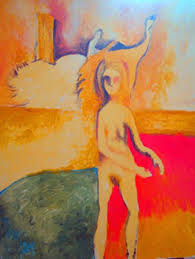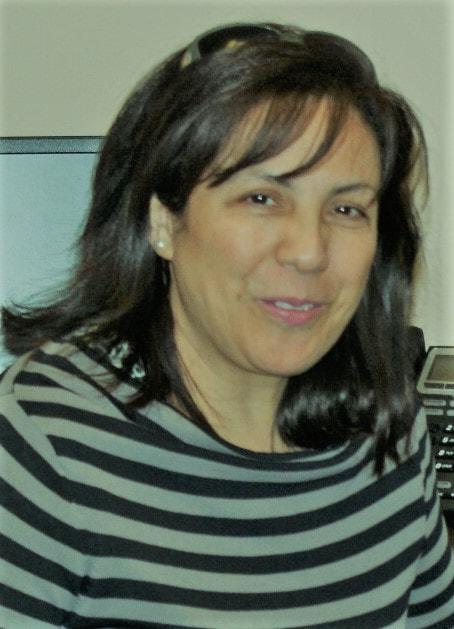|
As one of my new year’s resolution list, I will deliver all those mini-reviews I promised to friends and readers who often send their work to me in order to get some feedback. It is difficult to get a review for all those books pouring in, but here are some books that caught my attention.
I’m late in comparing with the date of the book publication, in delivering but not that much if you consider a review is valuable at any time. We are so incredibly pressed to get some feedback for our work as soon as the book comes out that often we forget that a review is important also, no matter when it comes out. I had one of my own books reviewed literally years after it was published. My thanks to the writers who always think that I would have something interesting to them to say, especially to Eric Torgersen and Jorge Etcheverry, who are always updating with fresh material. I will be posting more of these in my blog when time allows it. Apocalypses with Amazons Reviewed by Mariela Griffor Author: Jorge Etcheverry Publisher: Editorial Antares: http://www.glendon.yorku.ca/antares/english/editorial.html I like very much the tension of existential discharge contained in the pages. I like the feelings of anxiety and brusque, or better said the brutal, mental fracture that comes from some of the short stories in this collection. The shortest of these stories, and the one that bears the title of the book itself, Apocalypses with Amazons, is my favorite. It took me years to understand the work of Etcheverry and I’m not saying this for it being a lesser qualification but rather for its surrealistic complexity. It is representative of the works of the School of Santiago, created in the sixties whose slogan was “Here exists neither poetry nor prose: here exists only The Word.” A linguistic slogan that included later on the cultural class of exile. Apocalypse of the Amazons is different from other books of magic realism coming from Chilean expat Etcheverry, it is precise and chooses his characters carefully. He portrays the feminine characters as strong, attractive, smart, vulnerable and as intellectuals. His feminine characters never subdue. Many times these women are stronger, wiser. I’m not surprised that an author like Etcheverry had strong political views that creates an environment where reality is ‘fixed’ into an ulterior development where human values prevail, where human rights are saved and preserved, instead of the despots profiting of a modern society. Like searching for a perfect escape from a sordid reality, Etcheverry tries to ‘fix’ the outcome from the negative impact that a world that excludes so many, caused in the mind and soul of its members. The human spirit prevails in wonderful trips as “a bird that crossed the sky of fire, casting over the world the texts of what is called the operative Magic.” Despite the criticism and cynicism from the diary of Alberto Magno, the lines of “his” literary Alberto Magno, the lines of his faithful belief in humanity pour out in some of the lines: “And like this as a species of spiritual animal, overfed and misbalanced, impregnated over all existence in the Middle Ages, amplified to the square by technology that ended demonstrating that the ideas, religions and beliefs flowing over the grey world that doesn’t produce only dragons burning the skies, but also other entities, Greta Garbo and I leave the reality flow according our desires …”. Read this book, it will make you think. You will enjoy the reading. Etcheverry writes in this book about themes that are important, such insertion, acclimatization, dislocation, language decay and the search for the common in us. We share with him his love for the continent. His search, is a continuous search for making people from “the other Americas” more recognizable to the North. Jorge Etcheverry, born in 1945, is a former member of the School of Santiago and Grupo América from the 1960s. He lives in Canada and has published poetry, prose, criticism and various articles in several countries. His books of poetry are: The Escape Artist (1981); La Calle (1986); The Witch (1986); Tánger (1991); A Vuelo de Pájaro (1998); Vitral con Pájaros (2004); and Reflexión Hacia el Sur (2004). Lately, he has appeared in anthologies such as Cien microcuentos chilenos (2002); Los poetas y el general (2002); Anaconda, Antología di Poeti Americani (2003); El lugar de la memoria. Poetas y narradores de Chile (2007); Latinocanadá (2007); Poéticas de Chile. Chilean Poets (2007); 100 cuentos breves de todo el mundo (2007); and The Changing Faces of Chilean Poetry: A Translation of Avant Garde, Women's, and Protest Poetry (2008). Heart Wood Reviewed by Mariela Griffor Author: Eric Torgersen Publisher: Word Press (http://www.barnesandnoble.com/w/heart-wood-eric-torgersen/1111096452) Poets often ponder about death. We make death a friend when we try to understand her. We go back to her to pick on its mystery but we leave, we always leave until one day she will get us with such force we will not return. Torgersen’s book is a reflection on past and present times in a collection of free verse and structured forms that gives a clear idea of his life. Some of the poems are early work never published in book form until now. The strong, forceful, youthful view of the landscape that he inhabits offers us a window into a nostalgic look of a youth that escapes the body but never the mind. In the mind resides the tenderness, the sweetness, the enchantment of earlier years. He looks back and enjoys the regrets into that past that was immersed in youthful spirit full of astonishment in front before the nature, man and its surrounding. The poems, centered in current years, are severe; he examines the virtues of life and death with interior peace that invites the reader to get close to his revelations and without anxiety, but only reflection, as in the poem ‘I will die in Lake Superior’. I will die in Lake Superior on an August night, naked because it is dark and I ran out of the sauna, all rosy and wrinkly in the candle light of the cabin, though in the dark outside no one will see, not even I in my last moments- thin moon, stars all blazing and boiling like I’m Vincent van Gogh, but I will have left my glasses in the bathroom I’ll feel that first chill grip as I hit the water, and think, “My heart is pounding, as it should be”; then I’ll dive in and go under once, again, and a third time as the pounding grows, as if something really large mean to be let in. I will turn to go back, but the dim light of the cabin will get farther and farther away, as if I were carried off by some huge wave. Torgersen is a genuine writer, always searching for truths that impregnate the page. If you read this book, you will not be disappointed. You will be frequently reminded of this poem where he describes night, night in the cabins surrounded by the chant of the cicadas when it is not winter. Michigan landscape is everywhere in the book but it is always the humanity of its habitants that takes the center stage like in The Horses: The Horses on learning late, of the death of Nicolas Born The Horses, Nicolas. Once we all drove out through corn to ride the rented horses. You had it first, the horse whose legs years had locked in a stolid walk; you kicked and pulled. You made good jokes. We circled you on our spry horses, laughing. No rider, afraid of a gallop, I gave up my good horse then and you rode her back to the barn in style. Long past that circle of laughing friends I ride the slow horse home. He highlights the connection between humans and horses, while putting that experience into our own interaction with the page. The language is carved by the motion of riding and the emotion of a long lost childhood. Eric Torgersen has published six books and chapbooks of poetry, two of fiction, and a full-length study of Rainer Maria Rilke and Paula Modersohn-Becker. He also translates German poetry, especially that of Rainer Maria Rilke and Nicolas Born. He was born in Huntington, New York. He has a BA in German Literature from Cornell University; after two years in the Peace Corps in Ethiopia, he earned an MFA in poetry from the University of Iowa. He retired in the spring of 2008 after 38 years of teaching writing at Central Michigan University. He lives in Mt. Pleasant, Michigan with his wife, the quilt artist Ann Kowaleski. He’s available for workshops and readings. Comments are closed.
|
Name: Mariela Griffor Categories |



 RSS Feed
RSS Feed
